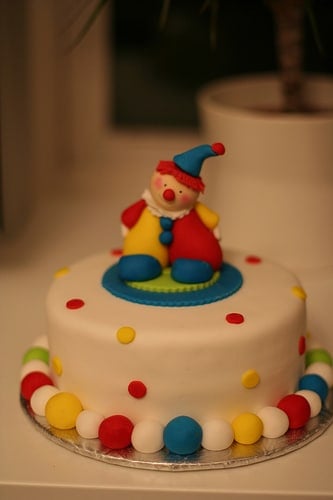
by Ecoziva (Brazil) | Nov 12, 2014 | 2014, Awareness, Brazil, Childhood, Cultural Differences, Entertainment, Family, International, Kids, Life Lesson, Milestones, Moving, Nutrition, Relationships, Stress, Tragedy, World Motherhood
This is the second post of a two-part series. To read part I of this post, please click here
 It was my fourth birthday party. Since we were moving to Brazil soon, it was also a farewell party, and a big one. It was the only big birthday party I have had in my entire life. I remember it was held at some sort of club, there were a lot of people and a hired caterer (something almost unthinkable for my mother!) And then there was the clown. And he wanted to paint my face.
It was my fourth birthday party. Since we were moving to Brazil soon, it was also a farewell party, and a big one. It was the only big birthday party I have had in my entire life. I remember it was held at some sort of club, there were a lot of people and a hired caterer (something almost unthinkable for my mother!) And then there was the clown. And he wanted to paint my face.
I was completely and irrationally terrified as only a four-year-old can be. While most of the other children were loving it all, I wanted nothing to do with the clown and his face paint (and certainly not on my face!). My party was ruined. In fact, I hid in the kitchen the entire time.
I don’t know exactly who stayed with me in the kitchen, but I don’t think it was either of my parents – at least not all of the time. Of course they were probably running around organizing things and tending to the guests. What really comforted me at that moment was the food, more specifically the dozens of intricately decorated mini-ice cream cakes. I recall later telling someone that the good side of the party was that I had stayed close to the food the entire time.
Although I hadn’t thought of it in a while, this story is not something that had been forgotten or hidden in my mind, as it has been told and retold over the years by my mother. The interesting detail that came up now was that of the ice cream cakes. When I remembered the ice cream cakes I felt like I could eat a ceiling-high pile. I felt like I had been looking for them my entire life. It was such a visceral craving it felt like nothing else could fill up my void except for those ice cream cakes. Right now writing this I want those ice cream cakes so badly it almost hurts.
It is interesting because here in Brazil ice cream cakes are rare – I believe I have only seen them for sale once in the more than 30 years I have lived here. I don’t know why this particular detail only came up so strongly now, nor what has been triggering this strong need for comfort and protection, which originally was a need to be shielded from someone scary (the clown) who wanted to do something I did not want to do (paint my face).
I don’t know if this is related, but it is also funny because I was never a big fan of makeup. Also, once when I was six and went through a brief period of interest for makeup, I got a kit of child makeup and ate several of the flavored lipsticks that came with it!
Perhaps this story will bring about significant change in my relationship with food, perhaps not, but it does bring up several issues related to my relationship with my own children.
For instance, it has reminded me that no matter how I try, it is impossible to protect them from every traumatic incident or foresee the lasting effect of seemingly small events on their lives. On the other hand, it is also a strong reminder not to belittle the things that upset them – what might seem insignificant or minor to me may be a huge deal to them and I must give them the best emotional support we can at all times.
Please share your stories about your relationship with food. Do you interfere in your children’s relationship with food? Do you actively foster a healthy relationship with food in your home?
This is the continuation of an original post to World Moms Blog published by our writer in Brazil and mother of three, EcoZiva. You can read Part I here.
The image in this post is credited to Chris Martin. It holds a Flickr Creative Commons attribution license.
Eco, from the greek oikos means home; Ziva has many meanings and roots, including Hebrew (brilliance, light), Slovenian (goddess of life) and Sanskrit (blessing). In Brazil, where EcoZiva has lived for most of her life, giving birth is often termed “giving the light”; thus, she thought, a mother is “home to light” during the nine months of pregnancy, and so the penname EcoZiva came to be for World Moms Blog.
Born in the USA in a multi-ethnic extended family, EcoZiva is married and the mother of two boys (aged 12 and three) and a five-year-old girl and a three yearboy. She is trained as a biologist and presently an university researcher/professor, but also a volunteer at the local environmental movement.
More Posts

by Melanie Oda (Japan) | Oct 16, 2014 | 2014, Awareness, Being Thankful, Child Care, Childhood, Cultural Differences, Culture, Expat Life, Eye on Culture, Family, Health, Hospital, International, Japan, Kids, Life Balance, Life Lesson, Living Abroad, Milestones, Motherhood, Parenting, World Motherhood, Younger Children
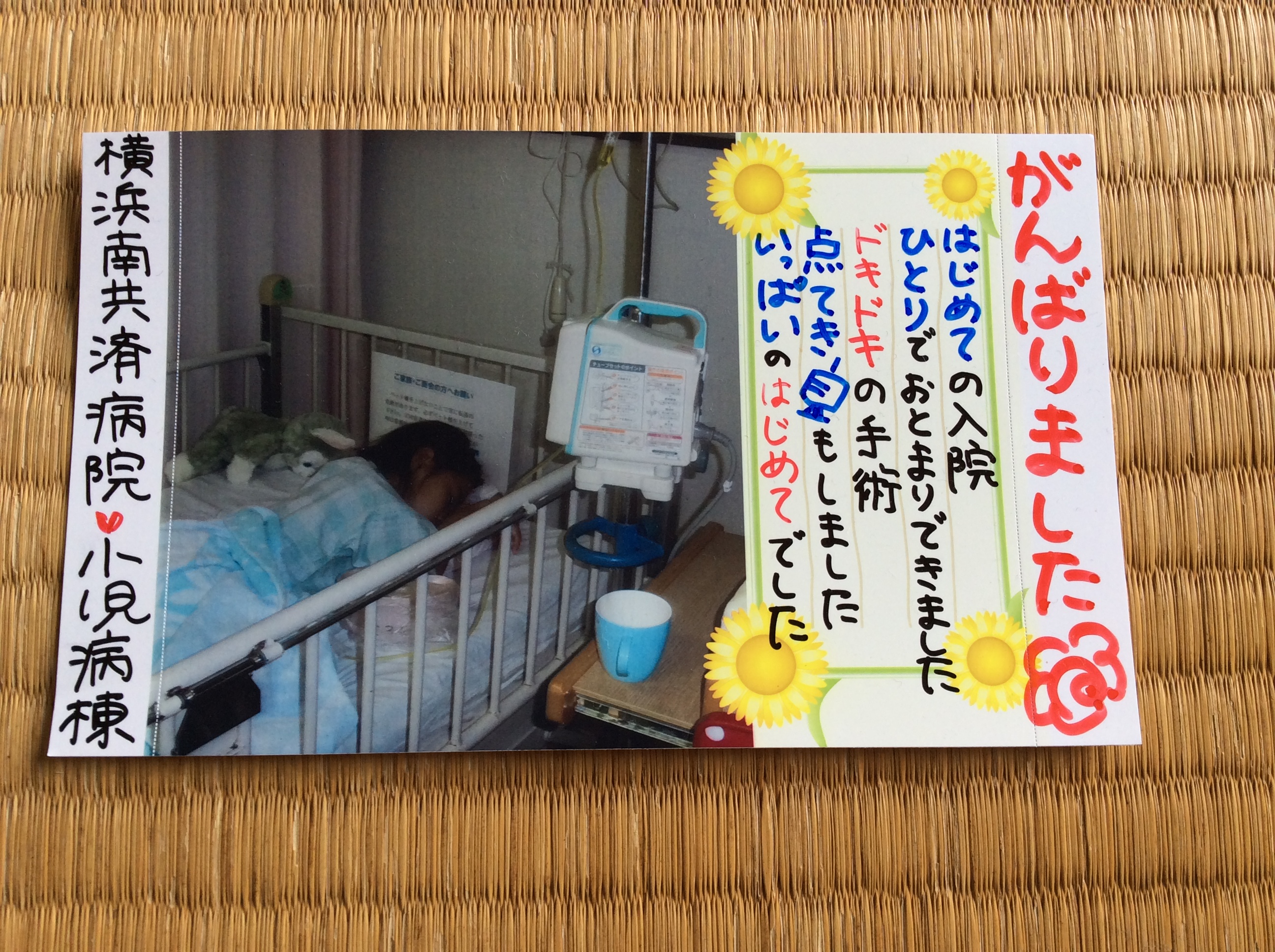 My 6 year-old daughter had her tonsils and adenoids out over summer vacation. She had been diagnosed with sleep apnea several months earlier and since nothing else was helping, finally I reluctantly agreed to the surgery.
My 6 year-old daughter had her tonsils and adenoids out over summer vacation. She had been diagnosed with sleep apnea several months earlier and since nothing else was helping, finally I reluctantly agreed to the surgery.
I was reluctant because hospital “culture” in Japan is very different from the US, where I am from, and because I knew I would be up against another cultural wall in regards to care for my older child.
This surgery, that requires a one-night stay in the hospital in either the US or UK (according to some quick research on my part,) here in Japan means seven nights in the hospital.
Since hospital rooms are shared, parents are not allowed to stay over night for any except the youngest of patients. Parents are expected to provide clean laundry and cutlery for the patient every day.
The children’s ward had a strict daily schedule, with times when they we’re confined to their beds (which literally had bars like a prison cell,) and times when, if they were well enough, they were allowed to use the playroom.
But absolutely under no circumstances whatever could they leave the children’s ward. And visitors under the age of 15 were not allowed in the ward.
This was a conundrum for me. I have a 9 year old son, who was on summer vacation at the time, and a husband who works 12 hour days, on a good day.
Hospital culture in Japan is strangely at odds with the wider culture in general. A high percentage of children co-sleep with their parents well into their elementary years. That is the cultural norm.
However, the hospital where my daughter had surgery, would not allow parents to spend the night with children over 2 years old.
This particular hospital allows parents of small children to stay until they fall asleep, but for my daughter, that may actually have been worse. Come lights out at 8pm, there was more crying in the children’s ward than from the nursery down the hall.
I had another child waiting at his friend’s house or at Baba’s (grandmother’s) house for me to come home, after all. My husband tried to get home from work at a decent hour, but I think he made it by 7pm once.
The day after the surgery, when my daughter was still feeling ill from the effects of the anesthesia and started bleeding from her nose, I was very grateful that she was in the hospital where I could have a professional attend to any concerns with the push of a nurse-call button.
Around Day 3, though, I could feel myself beginning to fall apart, fiber by fiber. The stress and plain old-fashioned exhaustion were starting to get to me.
My son at home was starting to feel the effects of being shuffled from place to place numerous times a day. My daughter wasn’t sleeping well and wanted to come home. I begged the doctor to discharge her a bit early, even a few hours would be great. His response was that the other child in the same room who’d had the same surgery on the same day was not recovering as well, and it would be upsetting for her if mine left earlier.
Excuse me, what? I thought, blinking several times, sure I had misheard. But I hadn’t.
On the day she was finally discharged, the nurses and staff presented her with a postcard, complete with a photo of her post-op, “to remember them by.” My first instinct was to burn it. Who would want to remember this? But I kept it, an ironic little reminder of the Japanese tendency to have “entrance” and “exit” ceremonies for everything.
I was reminded of a speech the principal of a junior high gave to the student body to announce that I was leaving: “People enter our lives, and at some point we must be parted. We should cherish each of these events.” Perhaps one day my daughter will value the card.
For now, she gets angry every time she sees it. The poor little girl has been waking up at night just “making sure I’m at home” for the past several weeks.
But now I look at the card and I feel profoundly thankful that my kids are, for the most part, healthy and happy. I don’t know how parents, who have to juggle (and it is a juggling with knives-type event, not harmless bean bags) a child’s hospitalization—along with the mundane tasks of everyday life that just keep coming, even when we are least able to deal with them—do it.
I say a little prayer for you every night, moms I do not know, and wish you strength and patience and space to breathe.
Has your child ever been hospitalized? What was it like for you, as a parent?
This is an original post to World Moms Blog from our mother of two in Japan, Melanie Oda.
The image used in this post is credited to the author.
If you ask Melanie Oda where she is from, she will answer "Georgia." (Unless you ask her in Japanese. Then she will say "America.") It sounds nice, and it's a one-word answer, which is what most people expect. The truth is more complex. She moved around several small towns in the south growing up. Such is life when your father is a Southern Baptist preacher of the hellfire and brimstone variety.
She came to Japan in 2000 as an assistant language teacher, and has never managed to leave. She currently resides in Yokohama, on the outskirts of Tokyo (but please don't tell anyone she described it that way! Citizens of Yokohama have a lot of pride). No one is more surprised to find her here, married to a Japanese man and with two bilingual children (aged four and seven), than herself. And possibly her mother.
You can read more about her misadventures in Asia on her blog, HamakkoMommy.
More Posts

by Mirjam | Oct 13, 2014 | 2014, Childhood, Cultural Differences, Family, Life Lesson, Netherlands, Uncategorized
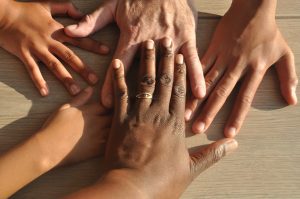 I’ve always had trouble knowing where to fit in. I have never known which box I was supposed to climb in or which label to stick on my forehead.
I’ve always had trouble knowing where to fit in. I have never known which box I was supposed to climb in or which label to stick on my forehead.
I was born in Surinam, but most of my life I have lived in the Netherlands.
My parents had a strong sense of culture and raised me accordingly.
We lived in a small town in the northern part of Holland that did not have many people of color.
Needless to say, things outside of my home were very different to things inside.
In my home there were loud voices and singing, dancing and vibrant music.
Outside of the home it felt like I needed to be ashamed of my mother’s loud voice,and I tried my best not to speak too loud.
Around my family I felt at home and liked my braids and dark skin.
Outside home, old ladies would sometimes come up to me and touch my ‘strange’ hair, and make me wish my skin wasn’t making it impossible to blend in or disappear.
There was lots of loud laughter in our home. My mother would read Anansi stories and we would laugh hysterically.
Outside of the home, I could not explain to people why any story that starts with: “Dear God, can you make everyone that laughs at someone else drop dead instantly…” is going to be a really funny one.
In Surinam culture it’s very important that children learn to respect their parents and older people. You never talk back, you never raise your voice and you always look down when you are spoken to by an adult.
At school the teacher would say: Look at me when I talk to you!
At home my parents would speak to each other and family members in Sranang tongo, their native tongue. They would speak to us in a mixture of Dutch and Surinamese, we spoke to them in Dutch. With my sisters I spoke in a mixture of Dutch and Surinamese.
At school I spoke Dutch and there were so many things I could not talk about or explain because there was no word for it in Dutch.
At birthdays, we had parties with lots of family and friends coming in from everywhere, staying for dinner and sleeping over. My mother would cook lots of food, aunts would help in the kitchen and the house was filled with all of these wonderful festive smells, and we would eat until we could eat no more.
When I was invited to a party of one of my friends, we sat in a quiet circle with mostly old family members having a polite conversation and we were given a piece of cheese with a little vlag stick (it’s a Dutch thing), everyone left before dinner and there was absolutely no music.
Growing up in these two cultures thought me how to adapt. I learned how to behave and what was expected of me in each situation. And because I was such a people pleaser, by the time I was in my teens, I could blend in anywhere and everywhere. and I knew what was expected of me. I also had lots of interest in different people.
The people I called my friends were a variety of ages, colors, cultures and mixtures and I loved every one of them.
Still, I always felt different.
I’m an adult now. I married a man whose skin color is the exact opposite of mine (no matter how much sun he gets). My children are of mixed culture. Their skin color is a mixture of ours, their hair is mixed, curly but not as curly as mine, dark but not as dark as mine.
My husband sometimes plays his (terrible) Dutch songs and I sing and dance with my children to old Surinam children’s songs. When we celebrate there’s lots of family and lots of food but no music, because my husband says he can’t have a conversation with music in the background. I teach my children to respect their parents and older people, but I also teach them that it’s okay to speak up and look people in the eye.
I mostly speak Dutch, but when emotional I turn to my native tongue, although my kids hardly understand what it is that I’m talking about.
I think here. With my own family a perfect mixture of black and white, Dutch and Surinam, east and west, I fit here.
Do you have a mixture of cultures in your family? How do you adapt?
This is an original post to World Moms Blog by Mirjam of The Netherlands.
Photo credit to the author.
Mirjam was born in warm, sunny Surinam, but raised in the cold, rainy Netherlands.
She´s the mom of three rambunctious beauties and has been married for over two decades to the love of her life.
Every day she´s challenged by combining the best and worst of two cultures at home.
She used to be an elementary school teacher but is now a stay at home Mom. In her free time she loves to pick up her photo camera.
Mirjam has had a life long battle with depression and is not afraid to talk about it.
She enjoys being a blogger, an amateur photographer, and loves being creative in many ways.
But most of all she loves live and laughter, even though sometimes she is the joke herself.
You can find Mirjam (sporadically) at her blog Apples and Roses where she blogs about her battle with depression and finding beauty in the simplest of things. You can also find Mirjam on Twitter and Instagram.
More Posts - Website
Follow Me:



by Susan Koh | Oct 9, 2014 | 2014, Awareness, Childhood, Domesticity, Family, Husband, Life Lesson, Marriage, Motherhood, Parenting, Relationships, Singapore, Stress, Susan Koh, Womanhood, World Motherhood, Younger Children
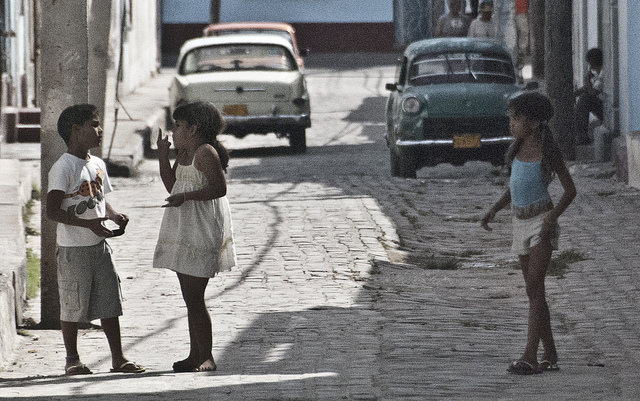 Among all the parenting rules in the book, no quarreling in front of the kids must rank pretty high up there. But, it’s the one that my husband and I have been flouting a lot lately, when our little five-year-old is around. And while we don’t choose to quarrel in full view of Sophie, arguments sometimes get over heated with voices raised and a quarrel ensnares. And when our voices rise, Sophie catches our bickering.
Among all the parenting rules in the book, no quarreling in front of the kids must rank pretty high up there. But, it’s the one that my husband and I have been flouting a lot lately, when our little five-year-old is around. And while we don’t choose to quarrel in full view of Sophie, arguments sometimes get over heated with voices raised and a quarrel ensnares. And when our voices rise, Sophie catches our bickering.
As much as we try to avoid conflict in our marriage, this is real life, where we have our failings keeping our tempers in check. As they say, familiarity breeds contempt.
I’m not proud that my daughter has to witness it, especially since she has a sensitive soul and picks up on the negative vibes quickly. And it’s even worse, when she thinks that mummy and daddy don’t love each other anymore because of our quarreling.
Last week, hubby and I had a heated arrangement over my complete lack of organizational abilities, which sent me flying into a rage because I was already halfway through packing. With more to and fro with his expectations and my explanations, neither was ready to step back or cool off. Before we knew it, there was a shouting match.
Sophie heard the commotion and came to my room and from the corner of my eye I could see her fear.
Intermittently, my little one even jumped to my defense and told daddy to stop scolding me because I was already trying my best to pack. Her words, though comforting, also felt like a sting and made me feel so guilty that she had to see the two people that she loved most in such an ugly argument. After I calmed down, hubby finally decided to help me pack as well and we both got working.
After 15 minutes little Sophie came back with a smile on her face and said:
See mummy and daddy you’re working together. You are a team now.
Those are words of gold coming from my five-year-old.
After we were done packing, we gave each other hi-fives for work well done. I even apologized for my lousy attitude to hubby and thanked him for helping, making sure that it was within Sophie’s ear-shot. I could see her beaming away.
As a mum, I sometimes forget that kids learn what they see and not what they hear. As much as we try to teach them to behave in a certain way, it’s what we model that will be a standard for them. And while quarreling in front of the kids is still a no no in my opinion, children learn that parents are also human. Parents can make mistakes but what matters is having the humility to apologize and ask for forgiveness.
At the end of the day, we are far from being perfect and can only endeavor to be better dads or mums for our kids.
This is an original post for World Moms Blog from our writer in Singapore, Susan Koh of A Juggling Mom.
The image used in this post is credited to Matt Smith and holds a Flickr Creative Commons attribution license.
Susan is from Singapore. As a full-time working mom, she's still learning to perfect the art of juggling between career and family while leading a happy and fulfilled life. She can't get by a day without coffee and swears she's no bimbo even though she likes pink and Hello Kitty. She's loves to travel and blogs passionately about parenting, marriage and relationship and leading a healthy life at A Juggling Mom.
More Posts

by ThinkSayBe | Oct 3, 2014 | 2013, 2014, Awareness, Babies, Childhood, Communication, Computers, Discipline, Education, Entertainment, Environment, Family, Girls, Kids, Life, Life Balance, Motherhood, Nature, Parenting, Technology, ThinkSayBe, Uncategorized, USA, World Moms Blog, World Motherhood, Younger Children
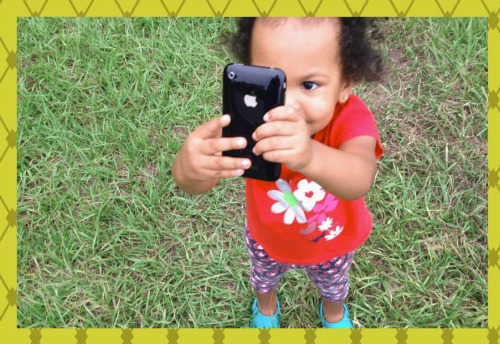 “Yes please, yes please, yes pleeeeease!” is what I hear almost every time my toddler sees or hears my phone. If she does not get it, she isn’t too happy. She may move on to playing with something else, but sometimes comes back pointing at where she last saw my phone, and says “yes please!” again. (more…)
“Yes please, yes please, yes pleeeeease!” is what I hear almost every time my toddler sees or hears my phone. If she does not get it, she isn’t too happy. She may move on to playing with something else, but sometimes comes back pointing at where she last saw my phone, and says “yes please!” again. (more…)
I am a mom amongst some other titles life has fortunately given me. I love photography & the reward of someone being really happy about a photo I took of her/him. I work, I study, I try to pay attention to life. I like writing. I don't understand many things...especially why humans treat each other & other living & inanimate things so vilely sometimes. I like to be an idealist, but when most fails, I do my best to not be a pessimist: Life itself is entirely too beautiful, amazing & inspiring to forget that it is!
More Posts
Follow Me:

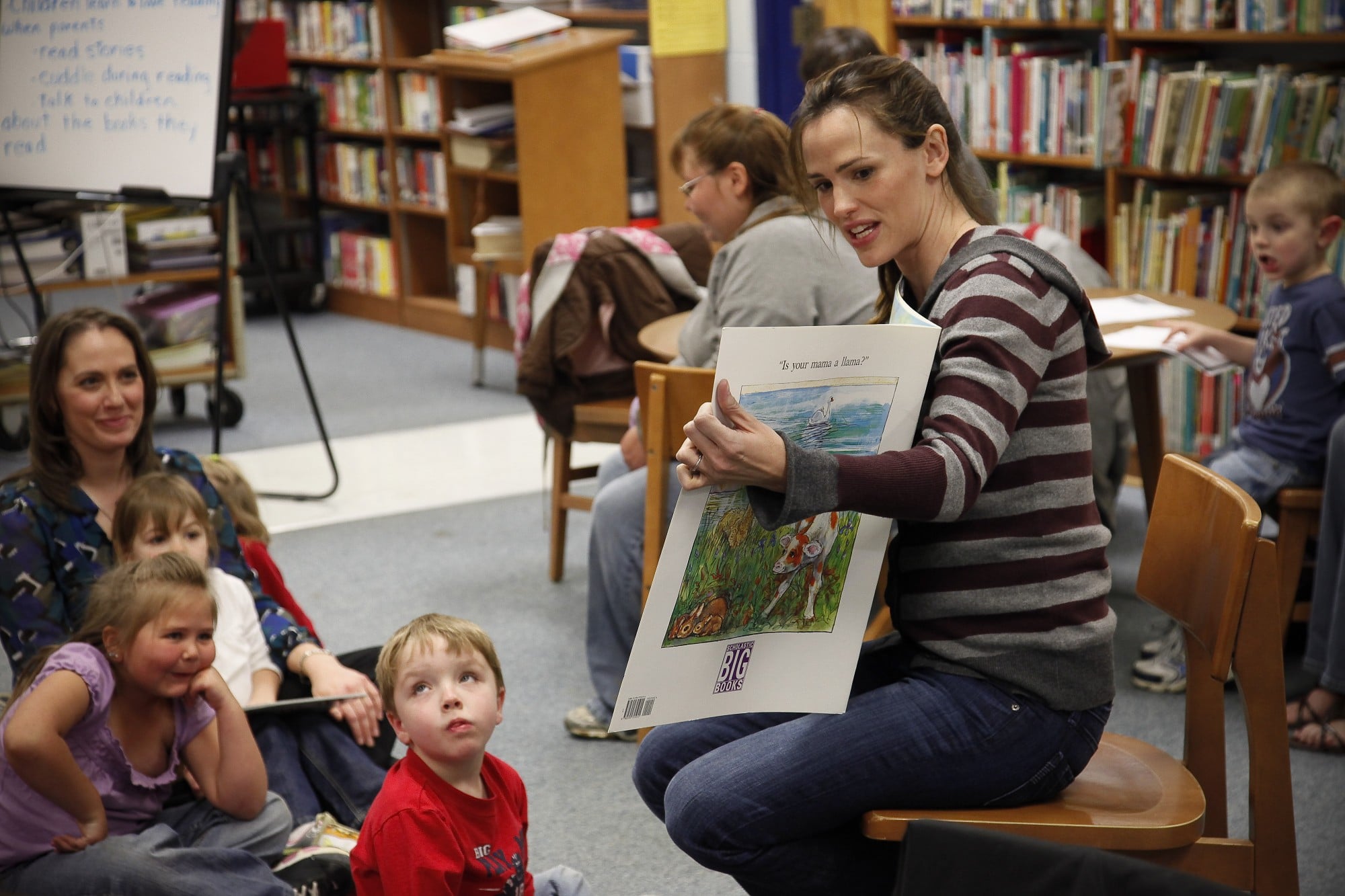
by Elizabeth Atalay | Sep 30, 2014 | 2014, Awareness, Childhood, Education, Humanitarian, Interviews, Preschool, Save The Children, School, Social Good, USA, World Interviews
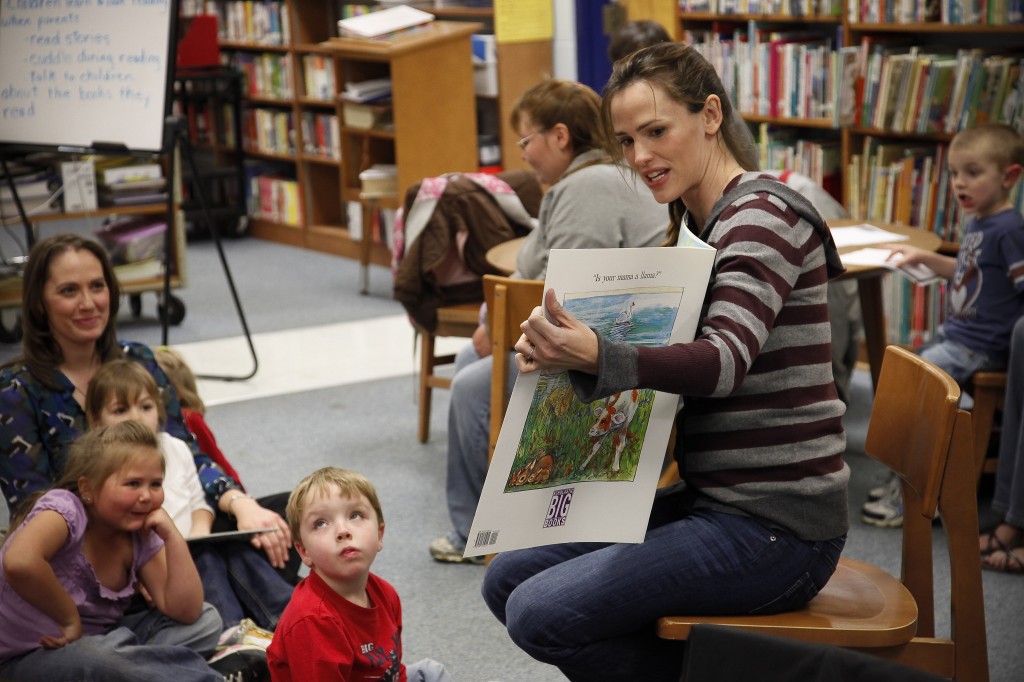
Actor Jennifer Garner visits with school children who are participants of a Save the Children reading program at LBJ Elementary School in, Ky. Photo by David Stephenson
“OPTIMISM”, Jennifer Garner chose the word optimism when we interviewed her about her work with Save The Children and the #FindTheWords campaign. My word had been “LEAD”, Jen Burden’s was “CREATE”, and Stacey Hoffer Weckstein of Evolving Stacey, who did the interview with me, had “COURAGE”. These were our words in the 30 words, 30 days blogger challenge for #FindTheWords to represent the 30 million fewer words kids would learn in homes without early education. In turn, when we had the exciting opportunity to interview her, we asked Jennifer Garner what her word would be.
“If you are working with a baby, with a mom, with a toddler, there is just so much optimism, she explained. I just feel like it’s just the most optimistic thing in the world to work on early childhood stuff”.
The investment in early education is optimism at it’s best. Studies have shown that the impact of early education can have long reaching effects as a child grows up. Kids are better academically prepared, socially adjusted, and tend to stay in school longer when they receive early education. In our conversation Jennifer Garner pointed out that some states have figured out that the money they spend from birth to five years old goes so much further than the recidivism that they would otherwise spend when a child is older and having trouble.
The hard facts cited by Save The Children are that in the United States 1 in 4 children lives in poverty and many do not have a single book in their home. These kids are not read to, and will not have access to a pre-school education. By age three they will have heard an average of 30 million less words than their peers which puts them at a great disadvantage before they even reach school. Ultimately these kids are 70% more likely to be arrested for violent crimes, 40% more likely to become a teen parent and 25% more likely to drop out of school.
“The injustice of it hits me at my very core.” said the mother of three.”So I just feel this drive to help be a part of making it be better.”
Jennifer Garner feels lucky to have come from a home with educated parents, but growing up in rural America, in West Virginia, she was aware that it was education that had made an enormous difference in both of her parents’ lives. In each case they were the first in their families to go to college, and it made her wonder who was around to help other kids like them to succeed without role models? Once she knew that this was the area in which she wanted to use her voice to make a difference, it was Mark Shriver, and Save The Children that she found was making the type of impact she was looking for in rural America.
Taking time out of her busy day with one of her little ones not feeling well, less than two weeks before her latest film, Alexander and the Terrible, Horrible, No Good, Very Bad Day hits theaters, to tell us why the issue of early education resonates with her was gracious beyond belief. She explained that her experience in the field with Save The Children, visiting mothers and children, had only made her want to do more. “The more you are let into people’s homes, and into people’s lives, and into people’s struggles, the more driven you become to do what you can to help them.”
Of the mothers she has had the chance to visit Jennifer says often “These moms are isolated, they’re tired, they don’t have mom friends or computers to read what you guys are writing about or to be encouraged.” ….” so when Save The Children rolls up and goes once a week to see them, they bring them books , they bring light, they bring life. And the main thing that I love to see is they bring encouragement for these moms.”
I asked Jennifer Garner her wish for all moms, to which she replied….
“Motherhood is the great equalizer, right? We’re all, as soon as you have a baby, we all have the same love and hopes, and dreams, and fears, and vulnerabilities, and I would just hope that nobody feels like they are going through it alone……it’s really hard to do on your own”
That’s exactly how we feel in our global community of World Moms, we are here to remind each other that we are not alone, in this crazy adventure of motherhood.
This is an original post written for World Moms Blog by Elizabeth Atalay. Elizabeth had the opportunity to interview Jennifer Garner as part of the #FindTheWords campaign with Save The Children. She also writes at documama.org.

Elizabeth Atalay is a Digital Media Producer, Managing Editor at World Moms Network, and a Social Media Manager. She was a 2015 United Nations Foundation Social Good Fellow, and traveled to Ethiopia as an International Reporting Project New Media Fellow to report on newborn health in 2014. On her personal blog, Documama.org, she uses digital media as a new medium for her background as a documentarian. After having worked on Feature Films and Television series for FOX, NBC, MGM, Columbia Pictures, Warner Brothers, 20th Century Fox, and Castle Rock Pictures, she studied documentary filmmaking and anthropology earning a Masters degree in Media Studies from The New School in New York. Since becoming a Digital Media Producer she has worked on social media campaigns for non-profits such as Save The Children, WaterAid, ONE.org, UNICEF, United Nations Foundation, Edesia, World Pulse, American Heart Association, and The Gates Foundation. Her writing has also been featured on ONE.org, Johnson & Johnson’s BabyCenter.com, EnoughProject.org, GaviAlliance.org, and Worldmomsnetwork.com. Elizabeth has traveled to 70 countries around the world, most recently to Haiti with Artisan Business Network to visit artisans in partnership with Macy’s Heart of Haiti line, which provides sustainable income to Haitian artisans. Elizabeth lives in New England with her husband and four children.
More Posts

 It was my fourth birthday party. Since we were moving to Brazil soon, it was also a farewell party, and a big one. It was the only big birthday party I have had in my entire life. I remember it was held at some sort of club, there were a lot of people and a hired caterer (something almost unthinkable for my mother!) And then there was the clown. And he wanted to paint my face.
It was my fourth birthday party. Since we were moving to Brazil soon, it was also a farewell party, and a big one. It was the only big birthday party I have had in my entire life. I remember it was held at some sort of club, there were a lot of people and a hired caterer (something almost unthinkable for my mother!) And then there was the clown. And he wanted to paint my face.









 “Yes please, yes please, yes pleeeeease!” is what I hear almost every time my toddler sees or hears my phone. If she does not get it, she isn’t too happy. She may move on to playing with something else, but sometimes comes back pointing at where she last saw my phone, and says “yes please!” again.
“Yes please, yes please, yes pleeeeease!” is what I hear almost every time my toddler sees or hears my phone. If she does not get it, she isn’t too happy. She may move on to playing with something else, but sometimes comes back pointing at where she last saw my phone, and says “yes please!” again. 




